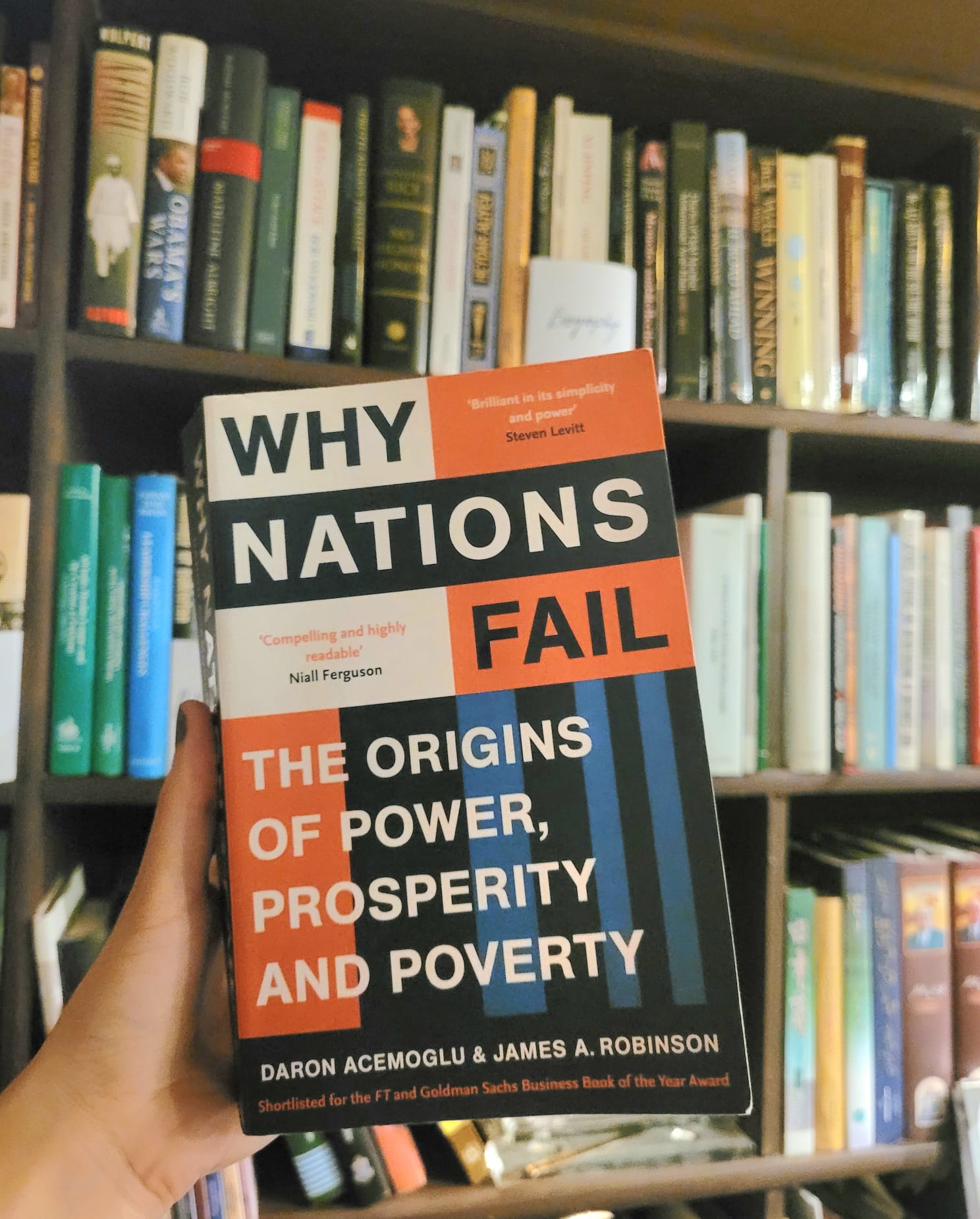Why nations fail: Origins of power, prosperity and poverty is a 2012 book that is still being read today as it contributes to debate as why similar looking nations differ in their economic and political development.
It is not a perfect book as its fundamental thesis of inclusive vs extractive gets repetitive overall, and we can also say that their prognostic on China has not been entirely true if we see China as it is now.
The authors try to explain what causes the disparities between developed and non development countries, and the answer relies on the institutions. ” Inclusive governments and institutions equal grow and sustained development. Extractive governments and institutions equal privation and stagnation”
Institutions are formed since the colonial period, where it relies the way they are formed and how they were formed explains why some countries have more inequality than others based on how successful or not their institutions are. The history of colonization shows how these institutions were formed, and once a society gets organized in a certain way it tends to persist, and this persistence explains how difficult is to remove inequality.
Institutions determine whether the politicians are agents of citizens or are going to abuse of the power. ” INSTITUTIONS FORGE THE SUCCESS OR FAILURE OF NATIONS”
“Economic Institutions are critical for determining whether a country is poor or prosperous, and political institutions determine what economic institutions has. Political and economic institutions interact in causing poverty or prosperity”
For example in US the institutions allowed business men such as Steve Jobs or Jeff Bezos to start easily companies, the labor market enable them to hire qualified people and political institutions ensured stability and continuity overall. Unfortunately in third development countries the effect of colonization was bigger and the institutions were not formed in pro of the people, they were formed for the elites.
” Countries are poor because they have been ruled by a narrow elite that organized the society for their own benefit at the expense of the mass of people “
The key on how the institutions are formed relies on the historical event of colonization, and this cannot be changed, therefore it is difficult for third development countries to stop this effect where elites have taken the power even until now, and institutions cooperate with them.
















